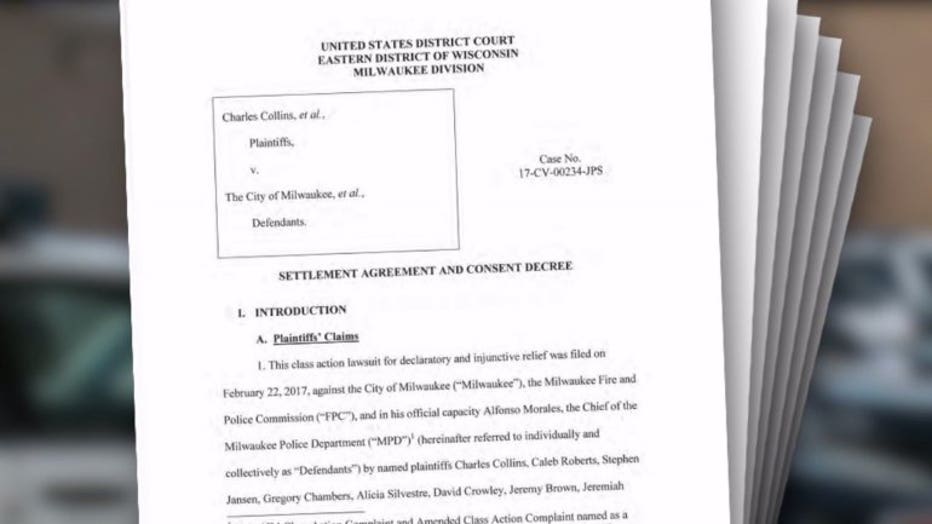Common Council to vote on resolution to settle ACLU stop and frisk lawsuit
MILWAUKEE -- The Milwaukee Common Council will vote on Tuesday, May 8 on a resolution to settle the ACLU of Wisconsin’s stop-and-frisk lawsuit against the city. Last year, the ACLU sued the city, claiming the practice was racist. The agreed-upon settlement is $1.9 million.

ACLU of Wisconsin
In February 2017, the ACLU filed a federal lawsuit on behalf of six black and Latino residents who said they were stopped by Milwaukee police officers solely because of their race.
The deal hit a snag in the Common Council’s Finance committee on Wednesday, May 2, when aldermen said the cost of the unknown was too great.
Deputy City Attorney Jan Smokowicz recommended that the Common Council authorize the city to borrow $1.9 million to pay the plaintiffs’ attorneys’ fees and court costs.
The interest payments could amount to $1 million over 10 years, but the borrowing is necessary because the city’s rainy day fund is so depleted, Budget Director Dennis Yaccarino said.

The proposed settlement forces Milwaukee to hire consulting firm Hillard Heintze of Chicago to ensure the police department overhauls its stop-and-frisk policies, improves documentation of its stops, and better trains officers. City officials do not know how much the consulting will cost.
A federal judge will oversee the changes for the next five years, according to the proposed settlement.
One group won’t see a dime from the proposed settlement: the nine plaintiffs, who weren’t seeking damages in the case.
The proposal won approval from the Common Council’s Judiciary committee on Monday, April 30. But Finance committee members, tasked with approving the $1.9 million in borrowing, said they wanted a better estimate of the total costs before voting.
Coggs said she also expected the Milwaukee Police Department’s costs to increase because of staffing and computer system upgrades needed to comply with the settlement terms.
The city has now agreed to commit to constitutional stop and search practices for at least five years. A 50-page document outlines exactly how that will be enforced within the Milwaukee Police Department.

